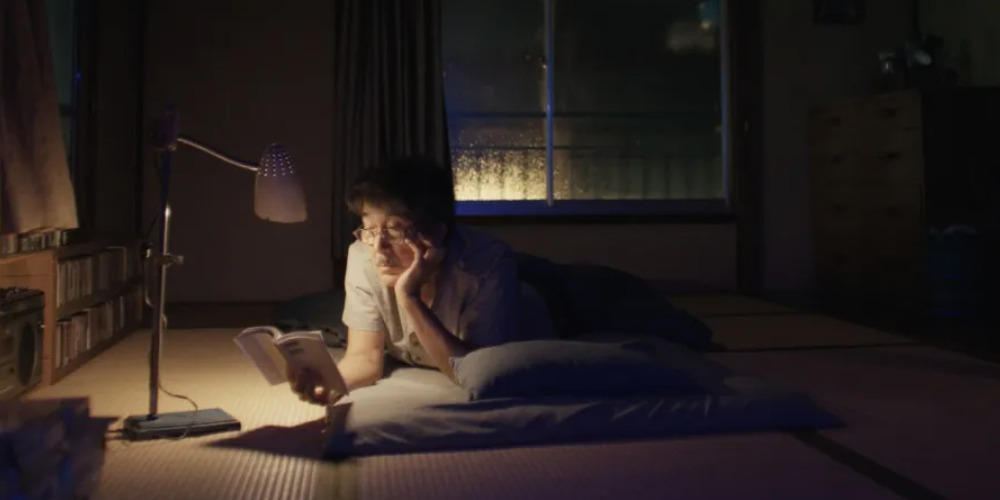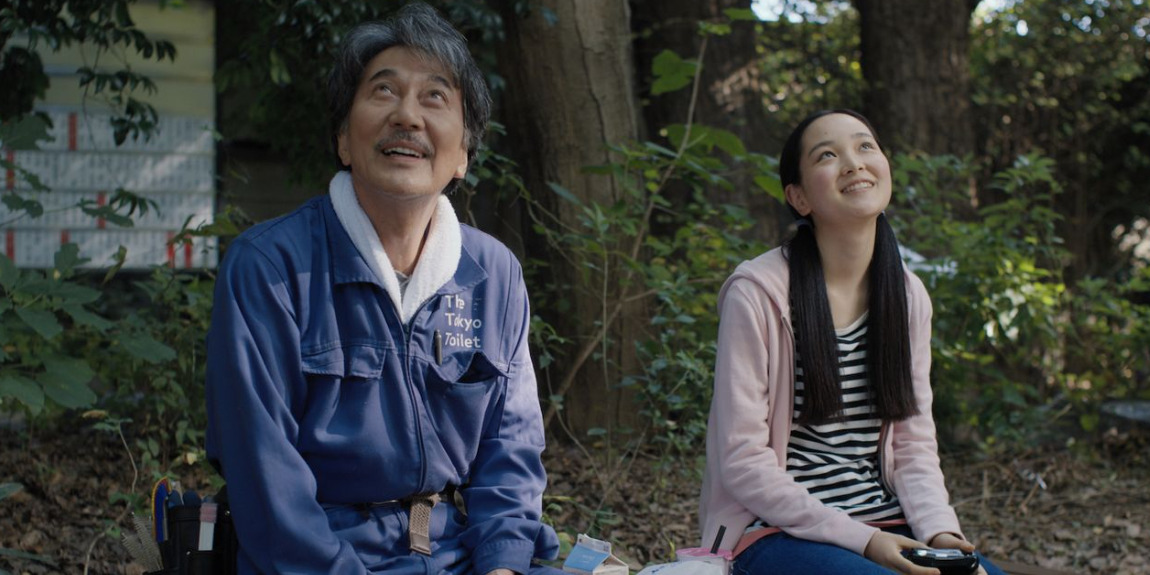‘Perfect Days,’ directed by Wim Wenders, is a picturesque Japanese film that follows the monotonous life of Hirayama, a Janitor working for the Tokyo Toilet Project. The older man’s days move with learned routine as he goes through his custodian duties around numerous public restrooms, usually moving from one park to another. In addition to the same, Hirayama’s penchant for books, cassette tapes, and nature photography— particularly trees— fill his days with a structured and well-loved sense of fulfillment. Thus, once a few changes upset his routine, in whatever small way, it opens some space for introspection.
The film presents an intimate and genuine slice-of-life tale about a regular man living a regular life. Yet, through skillful storytelling, the narrative manages to infuse its protagonist’s quiet and muted character with a rich authenticity, carving his on-screen presence into a realistic portrayal of raw human emotions. For the same reason, many may wonder about the film’s origin and whether or not it holds any basis in real life.
Perfect Days: A Fictional Story That Documents a Man’s Realistic Life
No, ‘Perfect Days’ is not based on a true story and is an entirely fictitious narrative about Hirayama, a fictional character’s life. The film— which highlights the invaluable service of custodians within society— a position that often remains underrepresented on the screen— found its roots after Producer Koji Yanaï invited renowned German director Wenders to Tokyo. During the pandemic, the Tokyo Toilet Project opened new designer public restrooms to increase the image and perception of public restrooms in Japan.

As such, after the 2020 Olympics got postponed, Yanaï proposed the idea of visiting these locations to Wenders to see if they instill any inspiration within the filmmaker. Where he initially expected some photographs or a short film or two, Wanders ended up getting struck with an inspiration for a feature-length film.
Thus, equipped with Japanese screenwriter Takuma Takasaki as his co-writer, Wenders began working on a script and came up with Hirayama’s mundane character with a narrative that brought out the beauty in his one-note life. Still, the scriptwriting process retained Wenders’ penchant for allowing fluidity and malleability for future change. In the end, the same worked out in the narrative’s favor since the story thrives on its minimum dialogue approach as it simply documents Hirayama’s everyday life.
“I don’t think I ever really tried to get into a character like this who has such humility and such simplicity and [who is] so content being of service,” Wenders told A.Frame in a conversation about his film. “This was new territory for me, and it came deep out of my soul and out of Takuma’s [Takasaki’s] soul.”
“I can’t say I conceived it. We both [Wenders and Takasaki] agreed that this is, at this moment in time, what we wanted to depict. Somebody who had a very different background, we don’t quite know much about, but we catch a few glimpses [about this person] who would choose this life and who’s happy with this life. I think [‘Perfect Days’] is a very spiritual film for me.”
As such, through Hirayama’s finely crafted character, the film finds its footing in authenticity, offering the viewers a sincere look into a man’s life. When it came to real-life reference, Wenders was open to mining inspiration from everywhere, including a particular nameless man as well as people whom he considers some of his favorite in the world.
Furthermore, Wenders also looked to Chishu Ryu, known for his acting career as a staple in Yasujirō Ozu’s filmography, for inspiration. In fact, the filmmaker Ozu informed a lot of Wenders’ mindset when he was working on the project. The protagonist’s name, Hirayama, is actually a reference to one of Ozu’s most cherished films, ‘Tokyo Story.’
Inversely, actor Koji Yakusho, who embodies Hirayama’s character, finds his own connections to reality in his portrayal of the character. Reportedly, the actor worked with public restrooms’ maintenance staff in preparation for the part. Moreover, he also underwent a two-day training to understand the cleaning procedures while continuing to consult with workers during filming. In that regard, Yakusho ensured to maintain authenticity within Hirayama’s profession as well as his general persona.
Ultimately, the film, which stemmed from the Tokyo Toilet Project’s desire to highlight the importance of its facilities and its custodian staff, ended up allowing a peek into human life in a vivid, colorful manner. Thus, even without a basis in reality, the narrative manages to convey an authentic story.
Read More: Best Feel-Good Movies on Netflix


You must be logged in to post a comment.